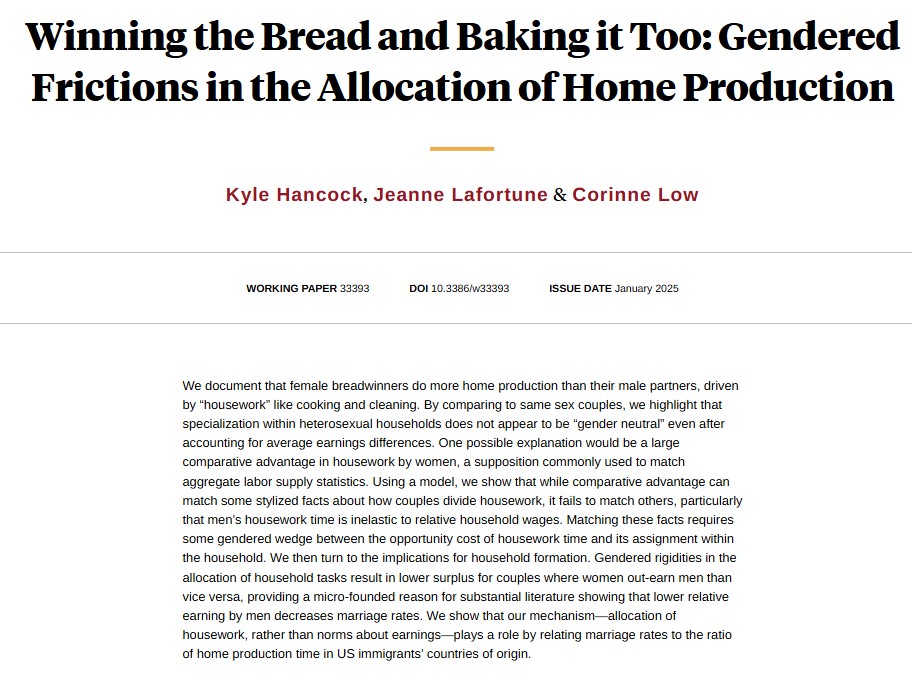
Monica Essig Aberg
@m_essigaberg
@BerkeleyEcon PhD Student / Fmr @PrincetonEcon IR Section RA, @Georgetown alum / Phoenix-raised / labor, philosophy, environment, and more (she/her)
ID: 1301250206852317186
02-09-2020 20:06:47
152 Tweet
255 Followers
469 Following

“We sought to create an environment where pre-docs could receive feedback on their work, learn from peers in other units, and gain valuable practice presenting research in a low-pressure setting,” said Monica Essig Aberg & Ethan Bergmann of the conference. bit.ly/43C0Pmk


Monica Essig Aberg This is really good to know! Thanks for putting it out there. I’m guessing it’s hard to get the information but would be nice to see how things have changed over time. 7/22 is the best gender ratio uchicago has seen so far from what i know.






Gendered roles have converged in the workplace, but not at home. New evidence suggests that the inelasticity of men's housework time might be standing in the way of marriage, from Kyle Hancock, Jeanne Lafortune, and Corinne Low nber.org/papers/w33393


